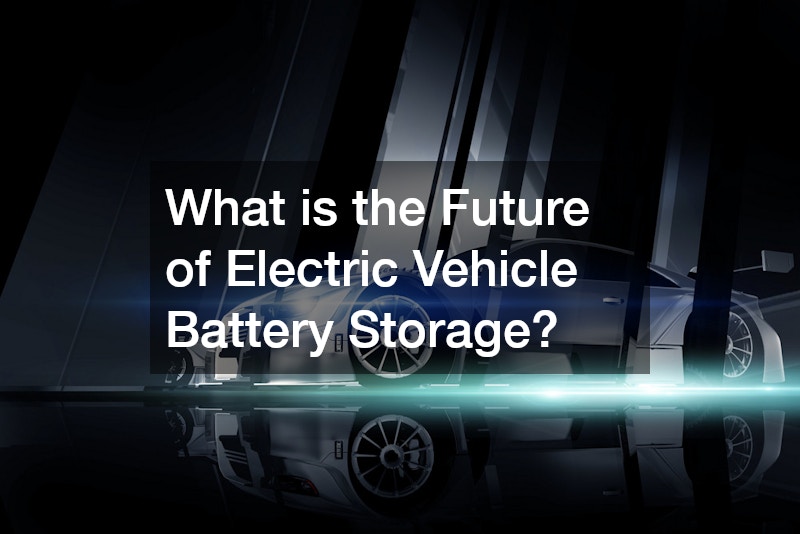This section provides a brief overview of the importance and role of battery storage in electric vehicles. As the automotive industry shifts towards electrification, efficient battery storage has become central to this transformation, promising sustainable transportation solutions. In this article, we explore the purpose of electric vehicle battery storage.
What is Electric Vehicle Battery Storage?
Definition and Function
Battery storage in electric vehicles refers to the systems and technologies that store electrical energy for automotive use. It is a crucial component, enabling vehicles to operate efficiently by providing the necessary energy for movement.
These batteries function by storing energy chemically and releasing it in an electrical form to power the vehicle. In simple terms, they act as the gas tank of an electric vehicle, holding the energy needed for operation. They predominantly use lithium-ion technology, offering a high energy density that supports longer driving ranges. Their ability to efficiently store and release energy defines the vehicle’s performance and range capabilities.
Types of Battery Storage Technologies
Various battery storage technologies exist, with lithium-ion being the most widely used in electric vehicles. This popularity is due to their energy efficiency, lightweight nature, and longer lifespan compared to other types. Other types of battery technologies include nickel-metal hydride, solid-state, and flow batteries, each offering unique benefits. Nickel-metal hydride batteries are known for their robustness, while solid-state batteries promise higher safety and energy densities.
Why is Battery Storage Important for Electric Vehicles?
Energy Efficiency and Vehicle Performance
The efficiency of a battery directly affects the energy consumption and range of an electric vehicle. High-performance batteries allow for extended travel distances on a single charge, enhancing the vehicle’s usability and convenience. Advanced battery storage technologies contribute significantly to reducing energy losses during conversion and storage. This increase in energy efficiency is pivotal for improving the overall performance and competitiveness of electric vehicles against traditional internal combustion engines. Additionally, efficient battery storage supports higher acceleration capabilities and better handling, which are key benefits for consumers. The ongoing advancements in battery technology continue to refine these performance criteria, making electric vehicles more appealing to a broader audience.
Environmental Impact and Sustainability
Battery storage plays a crucial role in electric vehicles’ ability to reduce carbon emissions and dependence on fossil fuels. These vehicles emit no tailpipe pollutants during operation, significantly reducing their environmental footprint. Moreover, advancements in battery recycling and manufacturing processes are improving their sustainability impacts. The development of more eco-friendly battery components is aiding in reducing the lifecycle emissions of these storage technologies.
How Does Electric Vehicle Battery Storage Work?
Basic Principles and Mechanisms
Electric vehicle batteries operate based on electrochemical principles, where chemical energy is converted into electrical energy. This conversion process is facilitated by the movement of lithium ions between the anode and cathode during discharge and charge cycles. The design of these batteries involves multiple cells, connected to form a module, which combine to form the battery pack. Each cell contains a chemically active material that enables ion transfer, dictating the storage capacity and energy density of the battery.
Charging and Discharging Processes
The charging process in electric vehicle batteries involves an external electrical source providing energy that forces lithium ions into the anode, storing energy for future use. Conversely, discharging occurs when the vehicle is in motion, with ions moving back to the cathode, producing electrical energy. This process allows for the continuous use of stored energy until the battery needs recharging. The efficiency of this charge-discharge cycle directly impacts the vehicle’s range and performance.
What are the Challenges and Limitations?
Technological Challenges
Despite significant advancements, electric vehicle batteries face several technological challenges, including limited range, long recharge times, and battery degradation over time. These issues can deter potential buyers worried about range anxiety and the longevity of their investment. Furthermore, the development of higher energy-density batteries requires ongoing research to overcome material and design limitations. Safety concerns, such as thermal management and potential battery fires, pose additional engineering challenges.
Economic and Infrastructural Limitations
The high cost of battery technology remains a significant economic barrier to widespread electric vehicle adoption. Manufacturing processes, raw material costs, and economies of scale are factors contributing to this financial challenge. Infrastructural limitations include insufficient charging networks and the need for significant investment to support widespread electric vehicle use. Expanding charging infrastructure is necessary to alleviate range anxiety and facilitate the transition to electric mobility seamlessly.
What is the Future of Electric Vehicle Battery Storage?
Innovations and Emerging Technologies
Innovations in battery technology, such as solid-state batteries, promise higher energy densities and improved safety features. These technologies are expected to revolutionize battery storage by offering longer ranges and shorter charging times. Emerging concepts like battery swapping and wireless charging are exploring new ways to keep electric vehicles running efficiently. These advancements aim to improve user convenience and integrate seamlessly into everyday life.
Impact on the Automotive Industry
Advancements in battery technology will have a profound impact on the future of the automotive industry, dictating the pace of transition towards electric mobility. Electric vehicles with superior battery systems are set to dominate the market, influencing both consumer preferences and automotive manufacturing standards. The evolution of battery technology will also drive the development of new business models, such as subscription services and shared fleets. Greater accessibility to high-performance batteries may lead to more innovative transportation solutions.
.





